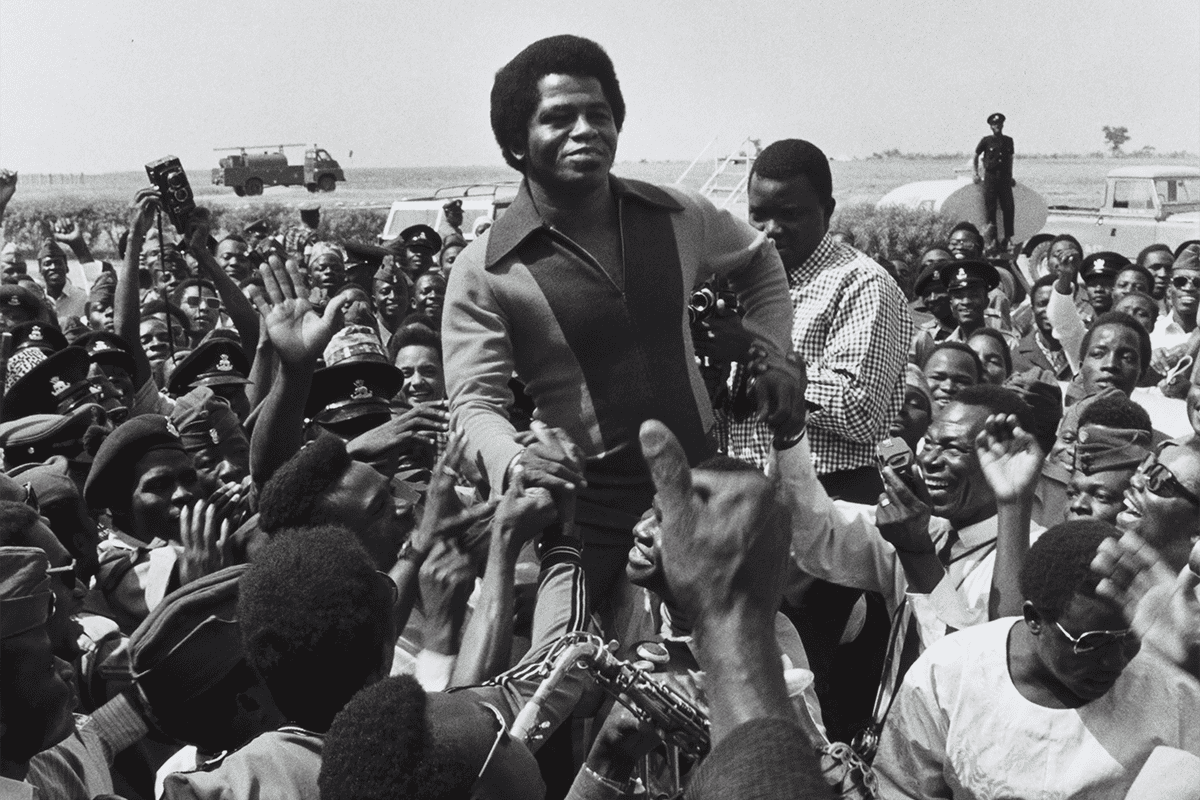Creators of African American school standards say guidelines criticized ‘without context’

TALLAHASSEE, Fla. (FLV) – Creators of Florida’s new African American school standards said it’s “disappointing” that people are criticizing the newly-approved guidelines “without context.”
The Florida Board of Education voted to passed new rules and standards for African American History in schools Wednesday.
Critics claimed page six, which stated instruction would include “how slaves developed skills which, in some instances, could be applied for their personal benefit,” was “inaccurate.”
It sparked Vice President Kamala Harris to announce she is speaking in Jacksonville on Friday.
However, Dr. William Allen and Dr. Frances Presley Rice, who created the standards, said the “intent” of this particular benchmark clarification is to “show that some slaves developed highly specialized trades from which they benefitted.”
The two are members of Florida’s African American History Standards workgroup.
The creators said it is “disappointing,” but “nevertheless unsurprising, that critics would reduce months of work to create Florida’s first ever stand-alone strand of African American History Standards to a few isolated expressions without context.”
“The intent of this particular benchmark clarification is to show that some slaves developed highly specialized trades from which they benefitted,” the creators said. “This is factual and well documented.”
They listed examples including: blacksmiths like Ned Cobb, Henry Blair, Lewis Latimer and John Henry; shoemakers like James Forten, Paul Cuffe and Betty Washington Lewis; fishing and shipping industry workers like Jupiter Hammon, John Chavis, William Whipper and Crispus Attucks; tailors like Elizabeth Keckley, James Thomas and Marietta Carter; and teachers like Betsey Stockton and Booker T. Washington.
However, some of the examples of people listed in the press release were not slaves themselves, but their relatives were.
Those members of the workgroup said they used a “methodical process” to “ensure the new standards provide comprehensive and rigorous instruction on African American History.”
Florida Board of Education passes new standards, requirements for African American History
The rules update Florida state academic standards in social studies for African American history to align with changes from HB 7 during the 2022 Legislative Session.
“Any attempt to reduce slaves to just victims of oppression fails to recognize their strength, courage and resiliency during a difficult time in American history,” the joint statement said. “Florida students deserve to learn how slaves took advantage of whatever circumstances they were in to benefit themselves and the community of African descendants.”
The creators said they encourage everyone to “view these robust standards for themselves.”
State Reps. Anna Eskamani, D-Orlando, and Rita Harris, D-Orlando, brought up concerns on part of the standards during the meeting Wednesday.
“I am very concerned by the standards, especially some of the notion that you know, enslaved people benefited from being enslaved, is inaccurate and a scary standard for us to establish in our educational curriculum,” Eskamani said.
State Rep. Jervonte Edmonds, D-West Palm Beach, issued a statement Thursday expressing concerns.
“This omission denies students the opportunity to understand the full extent of the African American experience, perpetuating historical inaccuracies and contributing to a lackluster version of American history,” Edmonds said.
Edmonds said the curriculum’s attempt to frame the labor skills developed by slaves as potentially “applied for their personal benefit” is “particularly concerning.”
“While officials argue that this is not meant to portray slavery as beneficial, the wording raises eyebrows and fails to fully address the harrowing realities of slavery, including the inhumane treatment and exploitation of millions of African Americans throughout history,” Edmonds added.
Dr. Paul Burns, deputy chancellor for educator quality, spoke before the vote Wednesday and addressed the comments, saying the standards “do not teach that slavery was beneficial.”
Florida Education Commissioner Manny Diaz Jr. noted the standards include “tougher subjects” along with beginnings of the slave trade, Jim Crow laws and more.
“It’s sad to see critics attempt to discredit what any unbiased observer would conclude to be in-depth and comprehensive African American History standards,” Education Department Director of Communications Alex Lanfranconi said in a statement. “They incorporate all components of African American History: the good, the bad and the ugly.”
The proposed standards also included identifying African Americans who demonstrated “heroism and patriotism” and those who made “positive contributions” in Florida.
Some examples of those who have demonstrated heroism and patriotism according to the standards included Booker T. Washington, Jesse Owens, Tuskegee Airmen, Martin Luther King Jr., Rosa Parks, President Barack Obama, 1st Lt. Vernon Baker, Sgt. 1st Class, and Melvin Morris.
The standards also noted African American who were pioneers in their field, which included former President Barack Obama, Vice President Kamala Harris, Secretary of State Colin Powell, Secretary of State Condoleezza Rice, Justice Ketanji Brown Jackson, Justice Clarence Thomas, Representative Shirley Chisholm, Arthur Ashe, and Ronald McNair.
Instruction includes the ramifications of prejudice, racism and stereotyping on individual freedoms (ex. the Civil Rights Cases, Black Codes, Jim Crow Laws, lynchings, Columbian Exposition of 1893).
Other instruction includes acts of violence perpetrated against and by African Americans but is not limited to 1906 Atlanta Race Riot, 1919 Washington, D.C. Race Riot, 1920 Ocoee Massacre, 1921 Tulsa Massacre and the 1923 Rosewood Massacre.



